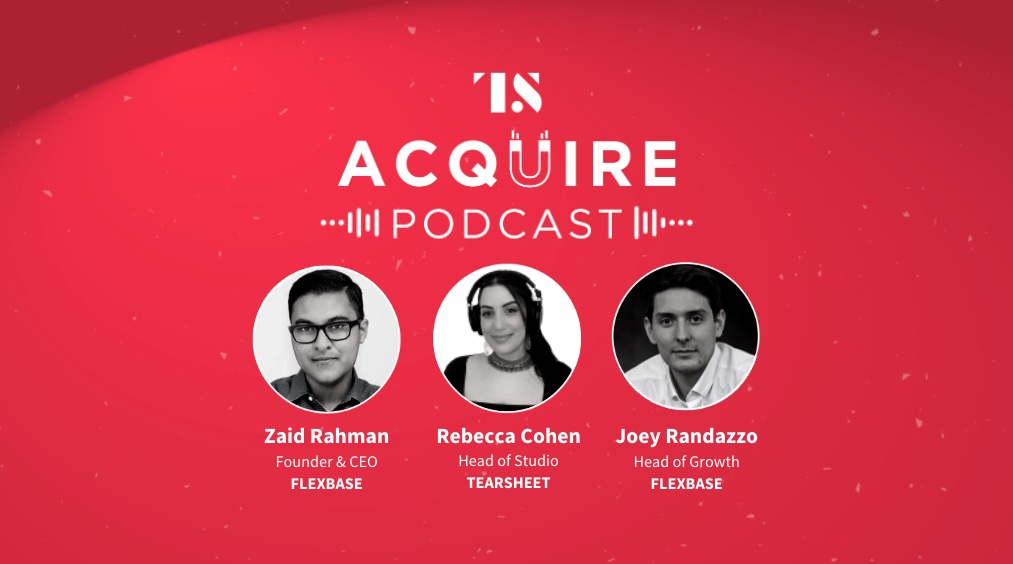Acquire Podcast, Modern Marketing, Podcasts
The Acquire Podcast Ep. 8: Billboards, donuts, and QR codes: Flexbase is building awareness
- Flexbase’s CEO Zaid Rahman and head of growth Joey Randazzo join us on the Acquire Podcast.
- From blanketing one city at a time, putting up billboards off highways, and shipping mysterious donut boxes – their awareness campaign is doing new things.








